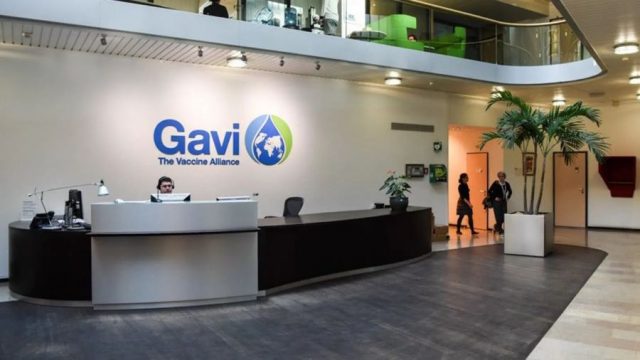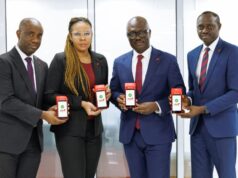WED, APRIL. 26 2023-theGBJournal |The world’s first effective malaria vaccine is finally available, but supply must grow significantly to meet demand, says Gavi, the Vaccine Alliance as it set out plans to build sustainable supply of malaria vaccines.
With an estimated 40-60 million doses currently to be needed by 2026 alone, growing to 80-100 million doses of vaccines needed each year by 2030, Gavi, the Vaccine Alliance, Tuesday published a white paper outlining actions that must be taken by governments, vaccine manufacturers and health agencies to meet this goal.
With 475,000 deaths of children under the age of 5 in 2021 on the African continent alone, malaria remains one of Africa’s biggest killers, despite concerted efforts that have seen the global death toll drop by a third since 2000.
The pre-qualification of the world’s first malaria vaccine – RTS,S/AS01e, developed and manufactured by GSK and which took more than three decades to develop – will save more lives, while a second vaccine, R21/Matrix-M, developed by Oxford University and manufactured by Serum Institute of India (SII), could also be prequalified and recommended by WHO very soon.
The major impediment that now stands in the way of a widespread roll out of malaria vaccines in endemic countries is supply.
According to Gavi’s market shaping roadmap for malaria vaccines, a production target of 40-60 million doses by 2026 is needed to meet countries’ needs, increasing to 80-100 million doses by 2030.
Such an outcome would require countries and partners to work together in key areas such as demand forecasting, boosting the number of suppliers and technology transfer, the report argues.
The report also outlines Gavi’s commitment to additional co-financing to ensure countries can access doses, support for countries to make timely applications, and fostering further innovation in malaria vaccination and greater integration with existing interventions.
“It has taken the world more than 50 years to develop a malaria vaccine,” said Dr Seth Berkley, CEO of Gavi. “Yet this year’s launch serves only as a reminder of what needs to happen now if we are to make malaria vaccines accessible to every child that needs them. We know how long African countries have waited for a vaccine against one of its greatest killers: if global health, countries, suppliers and civil society come together, we can soon contribute to preventing tens of thousands of child deaths every year along with other malaria control interventions.”
Gavi’s market shaping work over more than 22 years has helped bring down prices and increase supply of life-saving vaccines and made them available to children everywhere with a focus on reaching zero dose children. With concerted efforts, Gavi and its partners will do the same for malaria.
Gavi, the Vaccine Alliance is a public-private partnership that helps vaccinate half the world’s children against some of the world’s deadliest diseases.
Since its inception in 2000, Gavi has helped to immunise a whole generation – over 981 million children – and prevented more than 16.2 million future deaths, helping to halve child mortality in 73 lower-income countries.
Gavi is also a co-convener of COVAX, the vaccines pillar of the Access to COVID-19 Tools (ACT) Accelerator, together with the Coalition for Epidemic Preparedness Innovations (CEPI), the World Health Organization (WHO) and UNICEF.
In its role, Gavi is focused on procurement and delivery for COVAX: coordinating the design, implementation and administration of the COVAX Facility and the Gavi COVAX AMC and working with its Alliance partners UNICEF and WHO, along with governments, on country readiness and delivery.
The Vaccine Alliance brings together developing country and donor governments, the World Health Organization, UNICEF, the World Bank, the vaccine industry, technical agencies, civil society, the Bill & Melinda Gates Foundation and other private sector partners.
Twitter-@theGBJournal|Facebook-the Government and Business Journal|email:gbj@govbusinessjournal.ng| govandbusinessj@gmail.com










